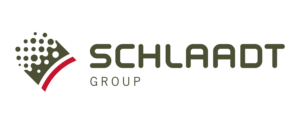
06.2024 ESRS in practice
Sustainability reporting according to the new EU rules
It works! Medium-sized companies can also produce their sustainability report in accordance with the EU’s ESRS standard. Here we use an example to describe why this is necessary and how it works.
In the fall of 2023, the EU adopted the European Sustainability Reporting Standards (ESRS). The national member states must now translate this rule into their sustainability reporting legislation. There is an ongoing debate about the differences between the German Sustainability Code and the ESRS and we can look forward to seeing exactly what implementation in Germany will look like. At the same time, we are experiencing a debate on the reduction of bureaucracy, which seems to contradict reporting. However, as part of the management report, a sustainability report says much more about a company. In future, the report will be used by banks for rating and assessing corporate and asset risks arising from climate change. This will not only apply to “green bonds”. (This is a fixed-interest security that is used to raise capital for activities to reduce or prevent environmental or climate damage). In addition, the reporting company must present a plan that clearly shows the reduction of CO2 and other consequences in management for the environment and social standards.
We were therefore happy to prepare a report with a client to test for ourselves what the current debate on ESRS is all about. The request came from the Schlaadt Group, a manufacturer of expanded polystyrene packaging. Our team has already gained plenty of experience in sustainability reporting in the past. This is an advantage, as our customer lacked this experience.
 The report includes an analysis of double materiality, a risk analysis, a GHG balance sheet, data collection on around 260 key figures and the creation of a sustainability strategy. The determination of a target agenda and the action plan must be carried out between the inventory in the first report and the second report. That sounds like a lot of work and an enormous burden. From experience, we can say that with combined forces, a good working group and management in a company, this task can be completed in three months. However, it requires a tight organization, support from the management, discussions with the workforce and works council as well as decisions by the management, which is fully behind it, and of course good software to record the data.
The report includes an analysis of double materiality, a risk analysis, a GHG balance sheet, data collection on around 260 key figures and the creation of a sustainability strategy. The determination of a target agenda and the action plan must be carried out between the inventory in the first report and the second report. That sounds like a lot of work and an enormous burden. From experience, we can say that with combined forces, a good working group and management in a company, this task can be completed in three months. However, it requires a tight organization, support from the management, discussions with the workforce and works council as well as decisions by the management, which is fully behind it, and of course good software to record the data.
“That’s how it’s done today,” emphasizes the Commercial Director of the Schlaadt Group, Max Menninger. “We have obtained competent support for an area that we will be obliged to cover from next year. The report is now available after barely three months. All divisions are now aware of their strengths and weaknesses in the area of sustainability. We are working intensively with the sustainability group on the strategy and concepts for greater sustainability. We have done our homework and are ready to start evaluating and implementing our action plan and the next report.”
We at Thinking Circular® are delighted to have a satisfied customer with whom we are already planning further steps towards the circular economy. Click here for the summary of the Schlaadt Group’s report (in German).